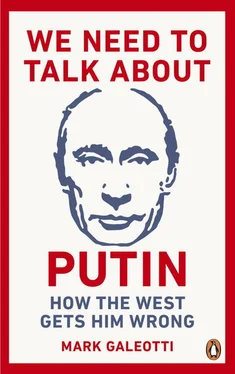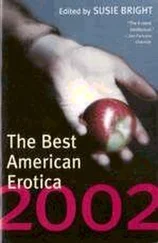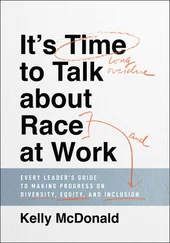In the 1990s, Putin obviously was looking for ways to make the most of his salary, but even then he seems to have been a man with an eye on the main chance, and it is hardly coincidental that the people with whom he forged connections – city officials, gangsters, even his fellow vacationers in the Ozero Dacha Cooperative – could all be useful to him. Now that he has whatever he wants, all Russia as his piggy bank, it is clear that it is power, not money that is his thing – his ever-growing wealth is more a by-product of the corruption and kleptocracy that is at the heart of his system. His gaze is firmly fixed on governing Russia and building his historical legacy. He understands how the promise of wealth – and the fear of losing it – motivates those around him, but it isn’t his drug of choice.
Although some sentimental leftists in the West still cling to the notion that Russia somehow still embodies the egalitarian values of old Soviet ideology, Putin has presided over the transformation of Russia into a hybrid state that is half old-style crony oligarchy and half caricature of the most rapacious form of capitalism. The richest 10 per cent of Russians own almost 90 per cent of the country, more than in any other developed nation. Meanwhile, much of their profits and assets flow out of Russia; they may talk the talk of the new model Putinist nationalist, but they gleefully take advantage of the financial opportunities of globalisation as they plunder the Motherland. This may drive them , but it is probably not, or at least no longer, what motivates the boss.
Let us, by all means, do everything we can to cleanse London and the other financial centres of the West of the dodgy Russian money that has enriched our bankers, driven up our property prices and distorted our politics, but we shouldn’t assume that targeting Putin’s money, or his obshchak , is some sort of magic weapon. If anything, if he loses access to his funds abroad, he will have all the more reason to stay in power at home, while if the oligarchs, minigarchs and corrupt officials are faced with the choice of either bringing their money home, where the state might take it, or leaving it abroad, where we definitely will take or freeze it, then they will probably do the former. And if it’s too late, they will simply become more dependent on the Kremlin for another juicy contract to help replenish their bank accounts. If we want to be able to influence Putin we need to pay attention to what really drives him rather than money, which is what we’ll turn to next.
Chapter 5: Putin Doesn’t Read Philosophy, and Russia Is Not Mordor
‘But what’s his philosophy?’ I’d been answering questions for almost an hour from a collection of intelligence analysts, in a European country with a fairly pressing interest in Russia. So far, the questions had been pretty specific and practical: which institutions had more power, who was on the way up and who might be on the way down, was Moscow going to push further into Ukraine? This last question caught me on the hop. I started to talk about Putin’s vision for Russia and his approach to power, but this was clearly not what the questioner had in mind.
‘No, I mean which philosophical school of thought does he follow? Is he committed to Dugin’s Eurasianism or Prokhanov’s neo-Imperialism? Do you subscribe to the view that his ideas are shaped by Ivan Ilyin’s writings?’ Oh dear, I thought to myself. I had been so close to getting out of there, but it seemed that I was going to be stuck for a while longer.
Having been caught by surprise by him before, people are often looking for the magic answer with Putin, the key that will somehow unlock his plans and secrets. For some, it’s all about following the money, while for others it’s about rebuilding the USSR. Then there are those like that analyst who, in their quest to try and understand how Putin thinks – and thus what he may do next – seek to identify philosophers, dead or alive, whom they can present as explaining his world view.
Consider the names above. Alexander Dugin is a writer, pundit, philosopher and enthusiastic self-publicist who delights in such Western descriptions of him as ‘Putin’s brain’. He espouses ‘Eurasianism’, the idea that Russia should be the heart of an empire spanning Europe and Asia, committed to fighting Western ‘Atlanticism’ and the liberal values it represents. At various times, he has eulogised fascism, Stalin, Neopaganism and then Putin, saying, ‘Putin is everywhere, Putin is everything, Putin is absolute, and Putin is indispensable.’ In early 2014 his views were useful to provide some kind of intellectual rationale for the Crimean land-grab, and when Putin was toying with either creating a puppet pseudo-state of ‘Novorossiya’ (‘New Russia’) in south-eastern Ukraine, or annexing that land, too. But by summer of that year, Putin had backed away from this idea, and Dugin was suddenly no longer useful. His appearances in the media dwindled dramatically, and his contract at Moscow State University was not renewed.
Alexander Prokhanov was an old-school propagandist from Soviet times, who was called ‘the nightingale of the General Staff’ for his sentimental odes to the bravery and decency of the Red Army, portraying them upholding internationalist values and foiling dastardly CIA plots from Afghanistan to Central America. Now he is an ageing ultranationalist, churning out articles and books calling for a new Russian empire, and making occasional trips to the Donbas to pose with a Kalashnikov in his hand. In 2012 he founded the Izborsk Club, a nationalist think tank that some see as a sinister engine powering Russian policy abroad. Yet while it regularly generates lunatic proposals, such as the idea that Ukraine could be divided between Russia, Poland, Hungary and Romania, they are distinctly absent from Kremlin calculations.
Finally, Ivan Ilyin was a White, or anti-Bolshevik, émigré who died in 1954. In The Road to Unfreedom , the historian Timothy Snyder paints him as a man who ‘ignored or despised: individualism, succession, integration, novelty, truth and equality’ and at the same time as an intellectual inspiration for Putin. This characterisation of Ilyin as a ‘fascist’ is pretty questionable – after all, this is a man who believed passionately in the rule of law and wrote that ‘freedom of the will is essential’ and that ‘self-determination in spirit is the deepest law of this life’. But regardless of such philosophical debates, the real issue is whether there is any evidence that Putin reads, let alone follows, Ilyin – or any of his other supposed inspirations. It is true that Ilyin’s writings were among a batch he suggested that regional governors read, back in 2014, and they certainly usefully justify his belief in Russia’s unique place in history, the importance of a strong ruler and the role of the Orthodox Church in defending Russia’s soul and ideals.
However, does occasionally quoting from the writing of Ilyin and others truly mean that Putin considers them his lodestars? Moreover, it is impossible to know if these are his or his speechwriters’ words. Instead of shaping policy, this is all about managing the public narrative; when some figures’ ideas are politically convenient they are hyped, and when they become liabilities they fade from view. Even when the ideas seem to chime with Putin’s own instincts, he is enough of a politician to put pragmatism first. Dugin, for example, has called for the Internet to be banned, and given that Putin has in the past described it as a CIA plot, one might think that this at least would get a positive hearing. However, with more than three-quarters of all Russians now using the Internet it is clearly a non-starter, and when the idea has been raised, Putin has shot it back down.
Читать дальше












